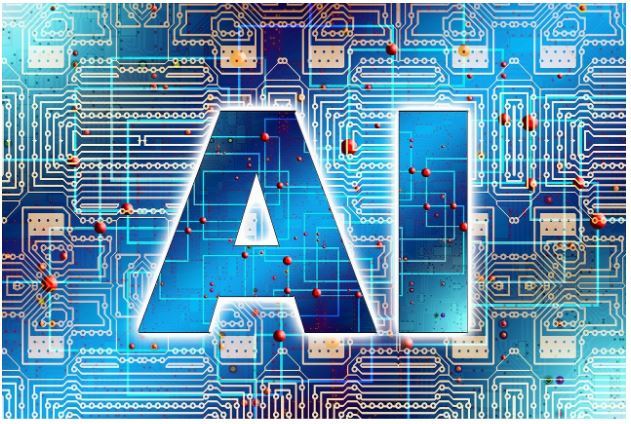
How Artificial Intelligence Is Transforming Access Control Companies and the Future of Secure Spaces
Artificial intelligence (AI) has rapidly evolved from a futuristic concept to a real-world technology embedded in our daily lives. From virtual assistants to smart homes, AI is redefining how we interact with technology and nowhere is this transformation more profound than in the security sector. Access control companies, once limited to traditional keycards and physical locks, are now embracing AI-driven innovations to create smarter, more adaptive security systems.
In today’s digital-first environment, securing a space goes far beyond simple authentication. AI has empowered access control to become predictive, context-aware, and highly customizable, meeting the demands of modern businesses, institutions, and homes.
From Traditional Access to Intelligent Decision-Making
Historically, access control relied on static systems: swipe a card, enter a PIN, or present a key fob to gain entry. While functional, these systems lacked the ability to adapt to changing behaviors, threats, or operational needs.
With the integration of AI, access control companies can now deploy systems that recognize patterns, assess risks, and make real-time decisions based on dynamic data. For instance, AI can analyze entry attempts, time patterns, and even behavioral cues to determine if access should be granted no longer relying solely on a static credential.
Machine learning algorithms continuously learn from user behavior, making it possible to detect anomalies such as unusual access times or suspicious movement patterns. This allows facilities to proactively prevent unauthorized access before it escalates into a breach.
AI-Powered Facial Recognition and Biometric Advancements
Facial recognition technology has advanced dramatically thanks to AI, and access control companies have been quick to integrate it into their solutions. Unlike traditional badges or passcodes, facial recognition offers a non-intrusive, frictionless entry experience while significantly boosting security.
AI-powered systems can now identify individuals even with slight changes in appearance, such as wearing glasses or a mask. They can also detect spoofing attempts (like using a photo) and flag them as security threats. Beyond facial recognition, AI is enhancing other biometric modalities such as voice recognition, gait analysis, and fingerprint scanning, creating multi-layered authentication systems that are nearly impossible to bypass.
This shift is particularly valuable in sensitive industries like healthcare, finance, and government, where securing access to data and physical assets is paramount.
Context-Aware Access Control: Smarter and Safer
One of the most exciting AI applications is context-aware access control. Instead of merely checking identity, AI systems assess a broader range of factors such as location, time, user behavior, and environmental cues to determine access eligibility.
Imagine a scenario where an employee typically enters an office between 8 a.m. and 10 a.m. Monday through Friday. If the same employee attempts to access the building at 2 a.m. on a Saturday, an AI-driven system would flag this behavior as suspicious, deny access, and alert security teams immediately.
Some advanced systems can also integrate with health data, ensuring that only individuals who meet certain safety criteria (like recent health screenings) can enter specific areas, a feature that became particularly relevant during the COVID-19 pandemic.
AI in Cloud-Based Access Control Solutions
The rise of cloud computing has revolutionized how access control companies deliver their services. Cloud-based platforms allow businesses to manage access permissions, monitor real-time events, and analyze historical data from anywhere in the world.
AI enhances cloud access control by automating many administrative tasks. For example, AI can automatically revoke access for employees who leave the company, suggest permission updates based on role changes, and generate predictive maintenance alerts for hardware issues.
Cloud systems also enable seamless integration with other smart technologies such as video surveillance, environmental sensors, and cybersecurity tools creating unified, AI-enhanced ecosystems for comprehensive protection.
Challenges and Ethical Considerations
As with any emerging technology, the adoption of AI in access control is not without challenges. Privacy concerns are a major issue, particularly around facial recognition and biometric data storage. Organizations must navigate complex legal frameworks like GDPR (General Data Protection Regulation) and CCPA (California Consumer Privacy Act) to ensure they handle personal data ethically and transparently.
Access control companies must also address the risks of AI bias. Poorly trained algorithms could result in unequal treatment or false positives. As a result, ongoing monitoring, transparent AI models, and inclusive data training are critical to ensure fairness and trustworthiness in AI-driven access control systems.
Future Outlook: AI Will Redefine Secure Spaces
Looking ahead, AI will continue to reshape how we define and manage secure spaces. We can expect access control systems to become even more autonomous, seamlessly blending cybersecurity and physical security measures. Predictive analytics will empower businesses to preempt security breaches, while decentralized identity models could allow individuals to control their own authentication credentials without centralized databases.
Ultimately, the collaboration between artificial intelligence and access control companies will lead to safer, more efficient, and more user-friendly environments whether in corporate offices, hospitals, educational institutions, or residential buildings.
As AI technology matures, businesses that embrace these innovations early will not only strengthen their security posture but also enhance user experiences, build trust, and stay ahead in an increasingly digital world.
Conclusion
Artificial intelligence is no longer a futuristic concept; it’s already reshaping the security landscape in powerful ways. For access control companies, AI is unlocking new levels of intelligence, flexibility, and responsiveness that traditional systems could never achieve. From facial recognition and behavior analysis to context-aware access decisions and cloud integration, AI is making security smarter, faster, and more adaptive to real-world risks.
However, with these advancements come important responsibilities around privacy, fairness, and ethical AI deployment. Companies that prioritize transparency, compliance, and user trust will lead the way in this new era.
As we move forward, it’s clear that AI-driven access control isn’t just a tech trend, it’s a cornerstone of the future of secure, intelligent spaces. Businesses and institutions that embrace these innovations today will be better equipped to protect what matters most in an increasingly connected world.


